IBAC: Why the inquiry into Victorian Labor could be bad news for Anthony Albanese
IBAC will spend weeks examining Victorian Labor, including grants handed to ethnic groups tied to Labor figures, suspected of branch stacking. It’s bad timing for Albo.
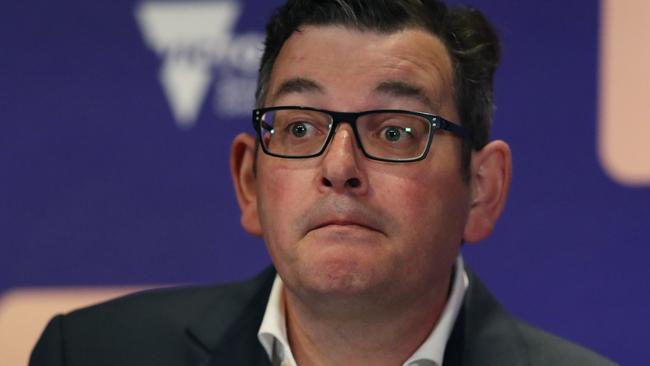
Victoria
Don't miss out on the headlines from Victoria. Followed categories will be added to My News.
When Christian Porter quit last month over concerns about a blind trust that paid the bills for his defamation case against the ABC, Anthony Albanese took to Twitter to make it clear he hadn’t gone far enough.
Yes, Porter was gone from the ministry, he said, “but he’s still a member of parliament and we cannot have members of parliament accepting anonymous donations of cash”.
How Albanese must regret those words.
Because on Monday, veteran Labor MP Anthony Byrne, appeared at Victoria’s Independent Broad-based Anti-corruption Commission to say that, among other things, over years or perhaps decades, he’d raised thousands of dollars in anonymous cash donations at fundraisers and used them to pay for ALP memberships – an expellable offence under Labor’s rules.
Worse, he claimed most of the people in attendance were well aware where the money was going.
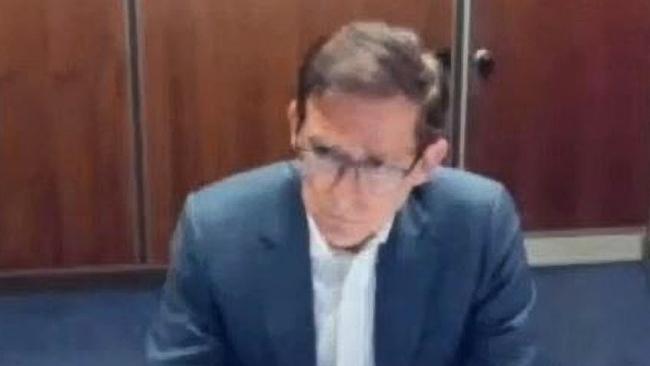
This is embarrassing because in recent years these events had been fronted by big name federal Labor players including Albanese’s deputy Richard Marles and his Climate Change and Energy spokesman Chris Bowen, although it’s not suggested they had any involvement in the practice claimed by Byrne.
Not only that, Byrne claimed that branch-stacking was endemic to the Labor Party in Victoria, that taxpayer funded staff were routinely used by the MPs for party political work, including stacking.
He even admitted that for months he’d employed an electorate officer who had simply refused to turn up to work.
IBAC intends to spend weeks looking at Victorian Labor, including how Daniel Andrews’ government handed out grants to ethnic community organisations tied to Labor figures who are suspected of branch stacking.
Trouble in the state that has been the jewel in Labor’s federal crown for the past three decades is the last thing Albanese needs just months from a federal election.
Labor currently holds 21 of Victoria’s 38 federal seats.
At the next election it hoped to add the new outer suburban seat of Hawke to its pile and to take Chisholm, held by Gladys Liu, off the Liberals.
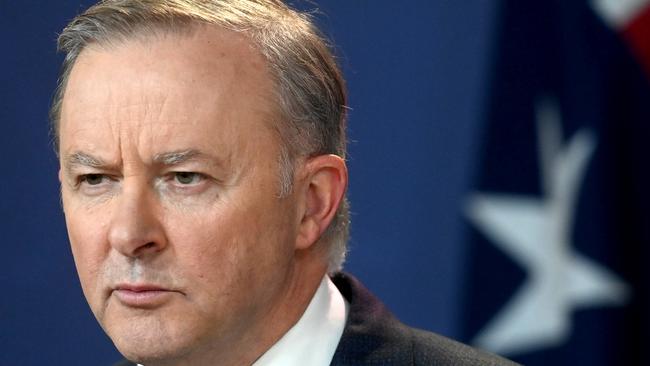
But in recent weeks Labor insiders have begun talking increasingly openly about the problems they are detecting in the party’s outer suburban and peri-urban electorates.
Instead of picking up seats, the talk now is that Labor might be in trouble in the two seats it won at the last election in Victoria – Dunkley on the eastern side of Port Philip Bay and Corangamite to its west.
If you talk to Labor insiders they all give the same reason: anger and frustration that has built up over the state’s long Covid lockdown.
There is also deep concern at the paralysis that has gripped the Victorian branch since last June’s federal intervention disenfranchised thousands of rank-and-file members.
“We’re about to ask people who’ve lost their rights to have any say in the party to stand on polling booths at the federal election,” one state MP said.
“How do you think that’s going to go?”
Former Assistant ALP State Secretary Kosmos Samaras says there is a swing against the major parties in outer suburban and peri-urban seats across Australia.
“In some the places this vote is coming off the Liberal pile and in others it’s coming off Labor – Labor’s problem is that compared to the Liberals, proportionately much less of those votes come back to Labor in second preference,” he said.
In Victoria the economic impact of the lockdowns has been disproportionately felt in these areas, in a state where the lockdowns have been imposed by a Labor Government.
“The effects of these lockdowns will have much greater impact on the federal election rather than next year’s state election,” he said.
Given all this, the last thing Albanese needs in Victoria at the moment is to be tied to an ethically-challenged MP.
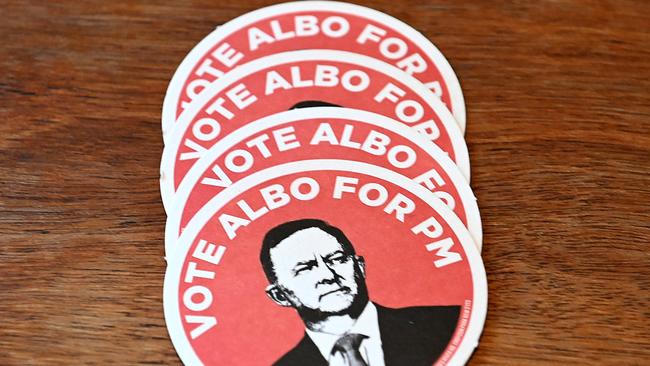
But every time the alternative prime minister was probed about what he planned to do about Byrne’s admissions this week, the moral clarity that applied in Porter’s case was nowhere to be seen.
Asked by broadcaster Ben Fordham on Thursday if he was happy for Byrne to continue to sit in parliament, the Opposition Leader answered, “that’s not a decision for me”.
OK, but was he happy for him to continue as a member of Labor’s caucus?
The question, Albanese suggested, was moot because he isn’t there very often: “He hasn’t been attending the parliament, Ben, because of the Victorian restrictions. He hasn’t been in parliament for some time. For some time.”
Confronted with a recording from 2020 in which he’d called for a Minister to quit over similar allegations Albo snapped: “Byrne isn’t a Minister, mate.”
Unsurprisingly, the opposition leader’s internal critics are loving the Labor leader’s discomfit.
“How can he stand by this bloke after what he said about Christian Porter?” one asked on Thursday.
Albanese’s reluctance to bullet Byrne only makes sense if you understand how much he owes him.
The IBAC hearings arise from a referral by former Victorian Attorney-General Jill Hennessy, in the wake of a 60 Minutes report in June last year that accused Local Government Minister Adem Somyurek of “blatant corruption” and controlling “two thirds of all Labor members in Victoria”.
The report featured covertly-recorded footage of Somyurek that had been filmed in Byrne’s electorate office and tapes of him speaking with Byrne’s electorate officer Alexandra Stalder.
Within hours of it airing, Albanese had asked Labor’s all-powerful National Executive Committee to suspend the entire Victorian branch, which quickly moved to re-endorse all sitting lower house MPs, including Byrne.
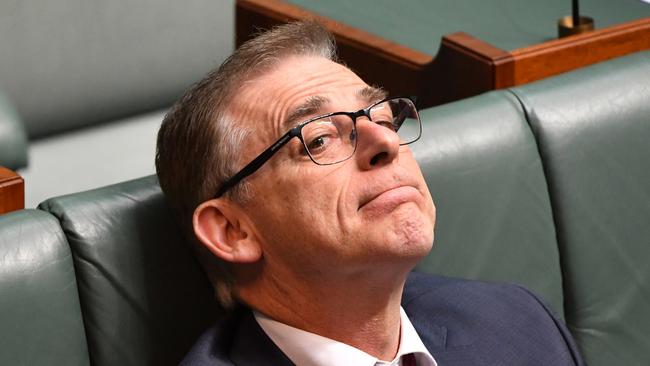
At the time the view was the move had been driven by Premier Daniel Andrews.
But a year later several senior Labor figures have come to the conclusion that Albanese and his deputy Marles, a longtime opponent of Somyurek, were the real authors of the crisis.
Disenfranchising the branch also had the happy effect of weakening the power of friends of Bill Shorten.
Given Byrne was deeply involved in the report that skewered Somyurek, you can understand why Albanese is sticking with him.
The irony is that because the Victorian branch is suspended, disendorsing Byrne can only be done by National Executive.
It’s something Labor figures are keen to see happen soon.
“There’s a deep pessimism about Albo (in the Victorian ALP) and attaching himself like a limpet mine to Anthony Byrne isn’t helping,” a former state ALP official said.
The former official is one of several figures who told the Herald Sun they are deeply worried about the impact of the federal intervention of Labor’s manpower on the ground in the federal election.
“Taking the branch membership out – you’re punishing rank and file members, so you’re basically saying to people, you pay your fees but you get no say in this organisation.”
Some people in Labor also fear that taking out the branch-stackers won’t weaken the power of the factions but merely concentrate it in fewer hands.
That’s because Labor’s constitution in theory splits power between the trade union affiliates and the rank and file members.
As the evidence presented to IBAC last week showed, the route to power in the ALP through numbers controlled in the branches may not have been pretty.
But it offered the only route to power open to people who want to make a contribution.
It also involved negotiating and managing different groups.
Union secretaries, on the other hand, have complete control of how their organisations use their numbers in the ALP.
“If you remove the members – stacked and real – what are you left with?” one ALP figure joked this week. “A bunch of union secretaries.”
Originally published as IBAC: Why the inquiry into Victorian Labor could be bad news for Anthony Albanese



